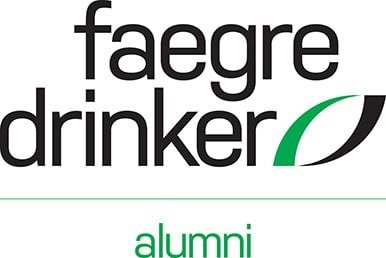Alumni Q&A: April Edwards Sellers

Name: April Edwards Sellers
Title: Clinical Professor
Indiana University, Kelley School of Business
Department of Business Law & Ethics
Firm Background: April was an associate and partner with the firm’s business litigation group in the Indianapolis office from 2006-2015.
What are your chief responsibilities and priorities as a clinical professor?
The focus of my job – and the reason I got into this career – is teaching. I teach a required business law course to both undergraduate and MBA students at the Kelley School of Business, as well as a business ethics class. I also teach a class focused on product liability law to a group of MBA students through a partnership with General Motors. And in January, I’ll start teaching a class called Law & Ethics At Work.
Aside from teaching, I serve on several committees and task forces at Kelley; that work mostly involves helping to develop policy for different aspects of the school. We’ve got an Executive Education program focused on corporate education, and I speak some in that area, too.
How has COVID-19 impacted your role? Are you teaching at the school or virtually?
Of course, it’s had a major impact. Large classes are entirely online this year; smaller ones are a mix. For me, that means about 75% of my teaching this semester will be online. More importantly, it’s impacted our students. This year requires making sure students are able to learn while we know that many of them will face challenges with accessibility, job loss and other personal hardships.
Given all the current stressors and pressures, what does “success” look like for you in the current environment?
The undercurrent of stress and uncertainty that permeates everyday life now is a challenge for all of us. I have two kids, and all working parents know the sort of challenges this time presents. Rising to the challenge of being an effective teacher and parent when my kids and students are under so much stress – that’s the goal right now.
As a clinical professor, we imagine your research has helped immensely with grounding your focus right now. Can you tell us about the areas of research you’re exploring?
I spend time researching every day, focused mostly on constitutional law and, increasingly, workplace law. In addition, my colleagues and I are really focused on diversity and inclusion. One goal of the Kelley School’s required ethics course is to prepare future business leaders who treat people well and take their values to work with them. Part of that is learning how to lead diverse teams, so I research issues related to blind spots, behavioral ethics and implicit biases.
What was your path to becoming a university professor after leaving the firm?
I was fortunate to find a full-time faculty position in my field at a time when it felt right to take it.
How did your time at the firm prepare you for working in a university setting?
Litigation prepared me for lots of public speaking, which is sort of what university teaching is. Learning how to write and speak persuasively in a high-pressure environment – that’s great preparation for so many things, including my career now.
Are there any lessons or colleagues you learned from during your tenure with the firm that have proven particularly valuable in your career or in life?
It’s impossible to list every useful skill that I learned at the firm, and all the people who mentored me. I fear that I will leave someone out if I name names. Having said that, the lessons that stand out are more about life than career: Do the right thing when no one’s watching, be generous to others less fortunate, [and] remember that people are more important than profits.
What are your proudest personal and professional achievements?
I’ll always be proud of several cases at the firm – mostly those that felt like we got the most just result, and those where the issue was particularly intellectually challenging. I was lucky to work on several cases where the client had an especially noble cause.
If you could go back in time to when you graduated from law school, what advice would you give yourself as a young lawyer?
The early years, when you’re learning what kind of lawyer you’ll be, are so important. More specifically, who teaches you how to be a lawyer is crucial. I was so fortunate to learn from people at the firm who not only were great lawyers but also just overall great people, and that really matters. I’d remind my younger self to make sure the people I’m learning from are the kind of people I’d like to be someday. In my case, they were.


